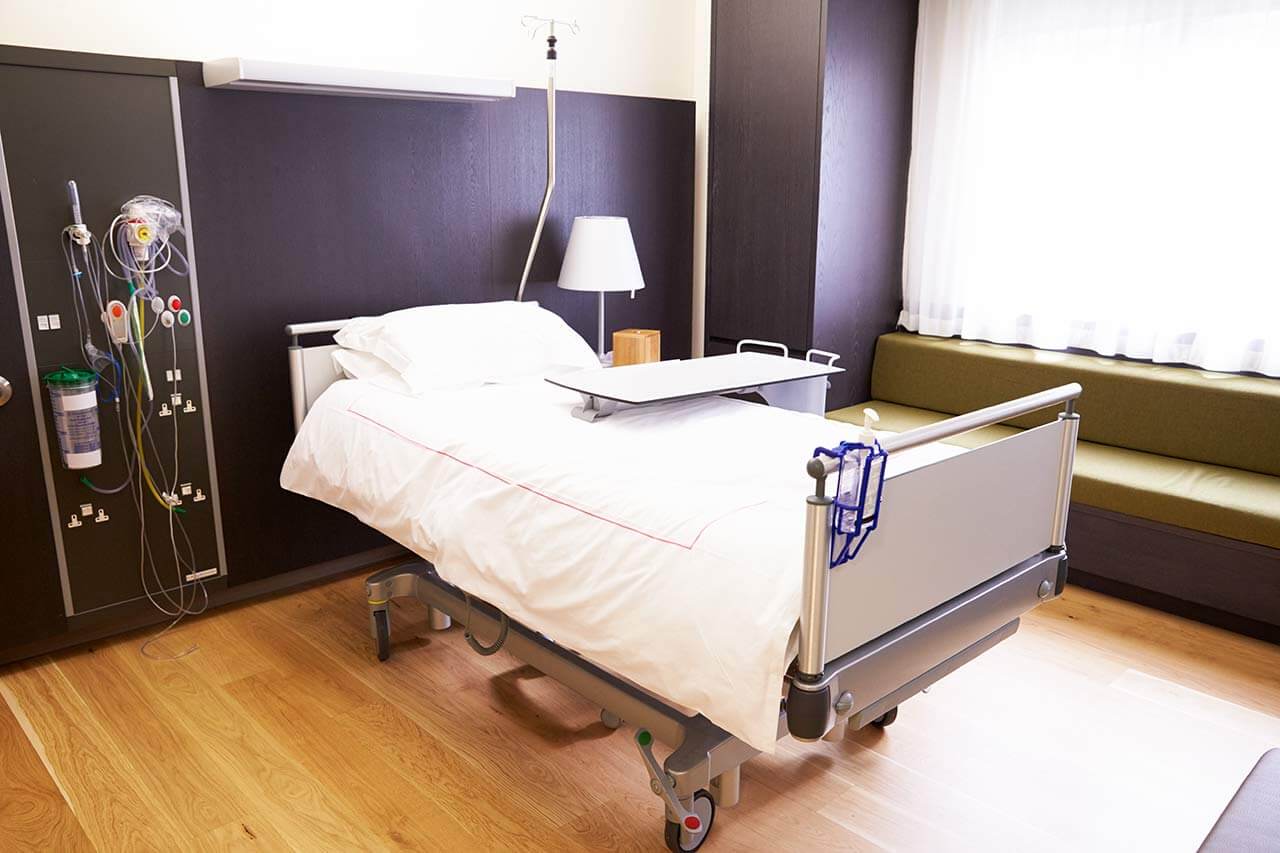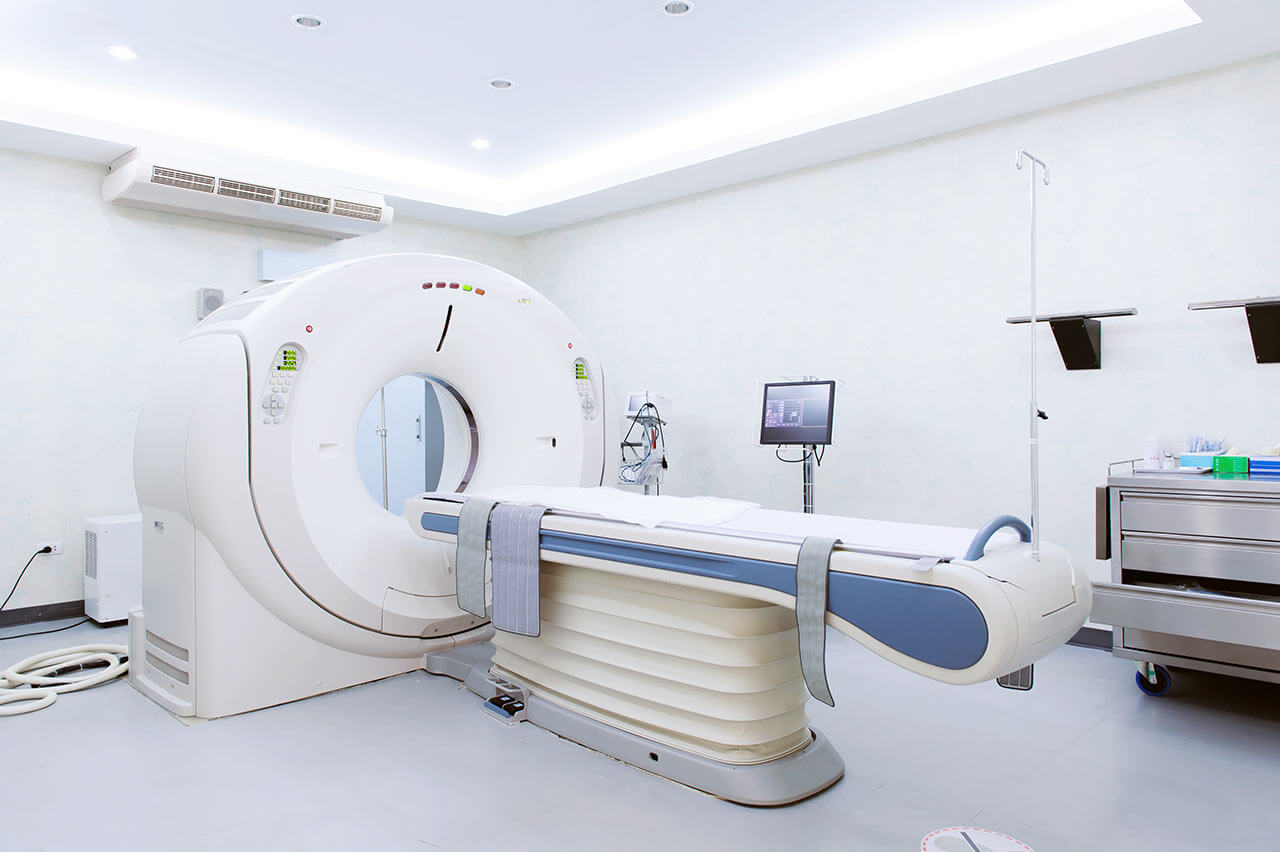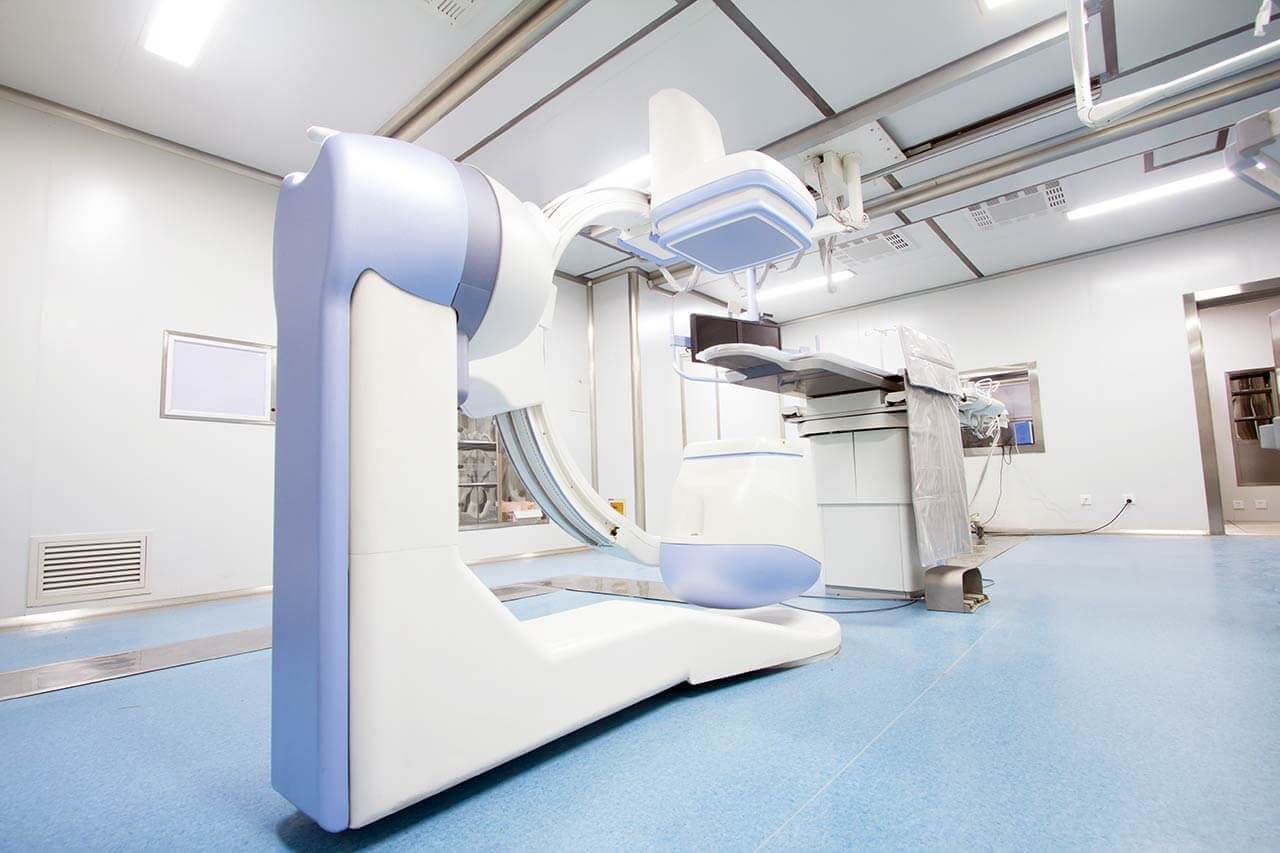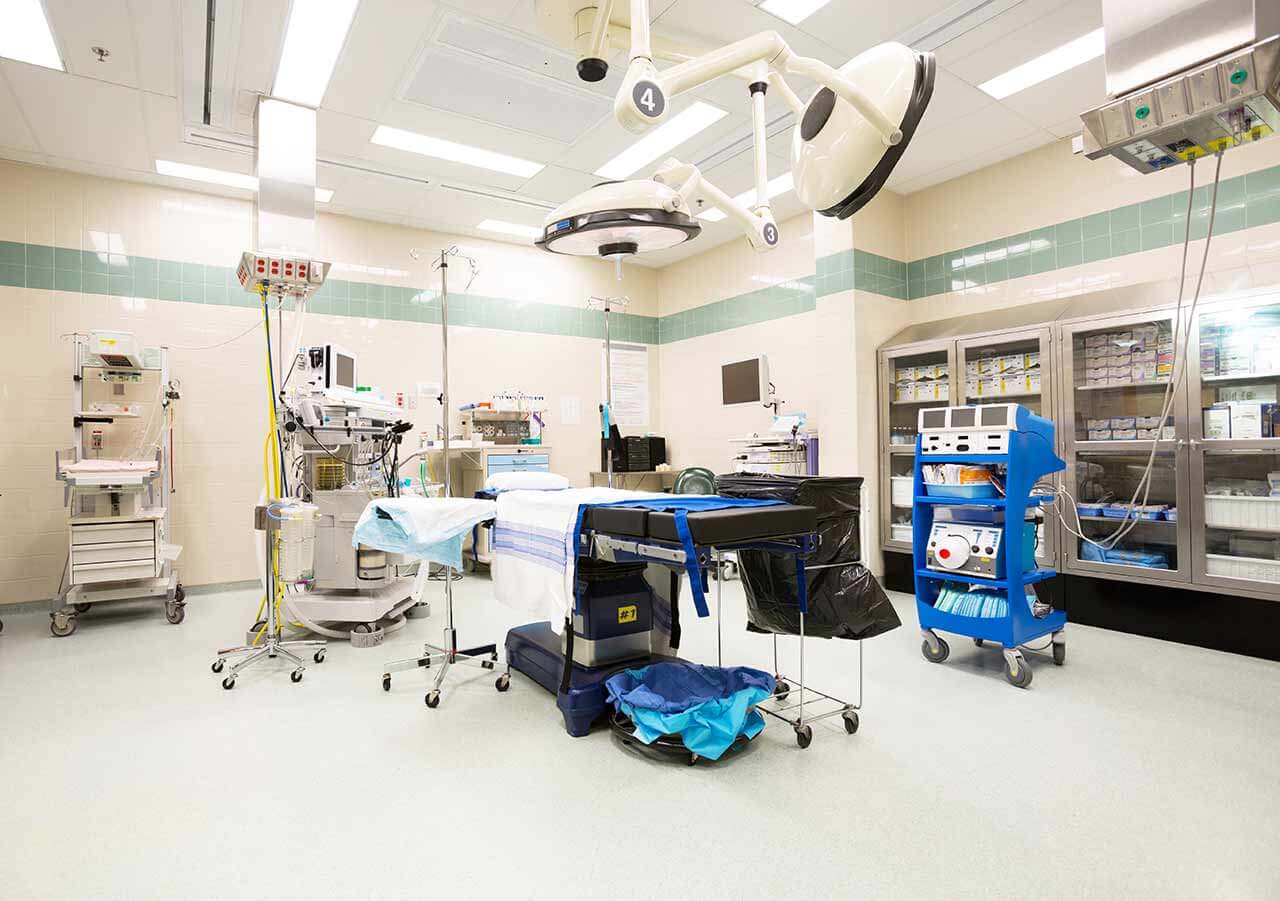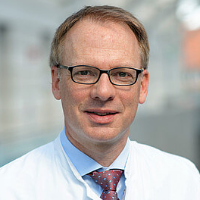
The program includes:
- Initial presentation in the clinic
- clinical history taking
- review of medical records
- physical examination
- laboratory tests:
- complete blood count
- biochemical analysis of blood
- inflammation indicators (CRP, ESR)
- indicators blood coagulation
- TSH-basal
- blood gas analysis
- chest x-ray examination
- bronchography
- pulmonary function test
- bronchoscopy with biopsy
- histological and microbiological examination
- measurement of arterial blood pressure
- electrocardiogram (ECG)
- echocardiography (ECHO)
- high-resolution computed tomography (HR-CT)
- consultation of related specialists
- symptomatic specific treatment
- the cost of essential medicines and materials
- nursing services
- control examinations
- full hospital accommodation
- developing of further guidance
Required documents
- Medical records
- X-ray examination, MRI/CT scan (if available)
Service
You may also book:
 BookingHealth Price from:
BookingHealth Price from:
About the department
The Department of Pulmonology at the Charite University Hospital Berlin provides a full range of medical services in its specialty. The department's team of doctors successfully performs conservative and endoscopic treatment of lung and respiratory tract diseases. The specialists of the medical facility focus on patients with obstructive lung diseases (for example, bronchial asthma and COPD), restrictive and interstitial lung diseases, pulmonary hypertension, autoimmune diseases with lung involvement, and malignant lung tumors. The department is part of the German Cancer Society (DKG) certified Lung Cancer Center, where pulmonologists, thoracic surgeons, oncologists, radiation therapists, and other experts work hand in hand. The department is one of the few medical centers in the country with extensive experience in the treatment of severe acute lung failure using extracorporeal membrane oxygenation (ECMO). The department has state-of-the-art equipment for diagnostic and therapeutic bronchoscopy. The healthcare facility has all the necessary resources, professional staff, and comfortable infrastructure to provide world-class medical care focused on outcomes and maximum patient benefit. The Head Physician of the department is Prof. Dr. med. Martin Witzenrath.
Lung cancer is one of the most common oncological diseases after breast, prostate, and colon cancer. The department is part of the specialized DKG-certified Lung Cancer Center, where pulmonologists, thoracic surgeons, oncologists, and physicians of other related specialties work under one roof for the benefit of patients. The center offers state-of-the-art treatment for malignant lung tumors, pleural mesothelioma, and thymoma in accordance with current clinical protocols. When a patient with suspected lung cancer comes to the center, specialists perform a comprehensive evaluation. If the diagnosis is confirmed, additional tests are prescribed to determine the stage of the oncological process. An interdisciplinary tumor board then develops an individualized treatment plan. In most cases, the first-line treatment is surgical resection of the tumor. Early-stage tumors can be removed using a minimally traumatic bronchoscopic procedure. Depending on individual clinical indications, chemotherapy, radiation therapy, targeted therapy, immunotherapy, and other types of systemic treatment may be prescribed in addition to surgery.
The team of pulmonologists in the department is highly qualified in the treatment of rare lung diseases such as sarcoidosis, hypersensitivity pneumonitis, rheumatic lung lesions, pulmonary fibrosis, and bronchiectasis. Patients suspected of having any of the above diseases must undergo an extended diagnostic evaluation that includes specialized laboratory tests, exercise testing, echocardiography, pulmonary function testing, and pulmonoscopy. Taking into account the results of the preliminary diagnostic workup, an optimal treatment regimen is developed based on a combination of different drug classes. Patients with rare lung diseases are diagnosed and treated in a specialized outpatient clinic.
An important focus of the daily work of the physicians in the department is the interventional treatment of advanced stages of pulmonary emphysema, a pathological condition in which the alveoli expand with destructive changes in their walls. Patients with this diagnosis are often prescribed treatment using bronchoscopic lung volume reduction. During the procedure, special one-way valves are implanted in the lung lobe affected by the pathological process, allowing air to escape from the affected lung. As a result of such a procedure, the volume of the pathological area of the lung decreases, symptoms disappear, and organ function improves.
The department specializes in the diagnostics and treatment of the following diseases:
- Malignant pulmonary diseases
- Lung cancer
- Pleural mesothelioma
- Thymoma
- Benign pulmonary diseases
- Chronic obstructive pulmonary disease
- Bronchial asthma
- Interstitial lung disease
- Restrictive lung disease
- Pulmonary hypertension
- Acute respiratory failure
- Autoimmune diseases with lung lesions
- Pneumonia
- Coronavirus infection COVID-19
- Rare lung diseases
- Sarcoidosis
- Hypersensitivity pneumonitis
- Rheumatic lung lesions
- Pulmonary fibrosis
- Bronchiectasis
- Other lung and respiratory tract diseases
The range of diagnostic and therapeutic services offered by the department includes the following options:
- Diagnostics
- Pulmonary function tests
- Body plethysmography
- Respiratory muscle strength functional assessment
- Arterial blood gas test
- Provocation tests
- Spiroergometry
- Lung diffusion test
- Six minute walk test
- Bronchoscopic examinations
- Bronchoalveolar lavage
- Lung and pleural biopsy
- Endobronchial ultrasound
- Special tests before lung volume reduction procedure for COPD and emphysema
- Diagnostic tests for pulmonary hypertension
- Echocardiography (transthoracic and transesophageal)
- Right heart catheterization
- Ultrasound scans of the chest, pleura, diaphragm, and lungs
- Dynamic fluoroscopy
- Allergy tests
- Imaging tests (in cooperation with the Department of Radiology)
- X-ray
- Computed tomography
- Magnetic resonance imaging
- Positron emission tomography in combination with computed tomography
- Comprehensive preliminary diagnostics before lung transplant surgery
- Pulmonary function tests
- Treatment
- Conservative treatment
- Drug therapy
- Respiratory gymnastics
- Inhalation therapy
- Extracorporeal membrane oxygenation (ECMO) for severe forms of acute respiratory failure
- Weaning from mechanical ventilation
- Preparation for lung transplant surgery and follow-up care
- Intensive care
- Bronchoscopic treatment
- Bronchoscopic removal of early-stage lung and pleural tumors
- Bronchoscopic lung volume reduction
- Bronchoalveolar lavage
- Pleural puncture
- Conservative treatment
- Other medical services
Curriculum vitae
Current Positions
- Medical Director, Center for Internal Medicine and Dermatology, Charite University Hospital Berlin.
- Head Physician, Department of Pulmonology, Charite University Hospital Berlin.
- W3 Professorship in Pulmonology, Charite University Hospital Berlin.
Higher Education and Professional Career
- 2017 - 2022 Deputy Head Physician, Department of Pulmonology, Charite University Hospital Berlin.
- 2012 Board certification in Pulmonology, University Hospital Berlin.
- 2011 - 2022 Senior Physician, Department of Pulmonology, Charite University Hospital Berlin.
- 2010 Board certification in Internal Medicine, Charite University Hospital Berlin.
- 1994 - 2001 Medical studies, Justus Liebig University Giessen.
Academic Career
- 2017 W3 Professorship in Pulmonology, Charite University Hospital Berlin.
- 2017 Invitation to a position of W3 Professor in Infectology, Hannover Medical School (refused).
- 2016 Invitation to W3 Professorship in Pulmonology, University of Luebeck (refused); invitation to medical directorship, Leibniz Research Institute in Borstel (refused).
- 2012 W2 Professorship in Pulmonology, Charite University Hospital Berlin.
- 2011 Invitation to a position of W3 Professor in Experimental Pulmonology, Saarland University (refused).
- 2010 Habilitation and Venia legendi at the Charite University Hospital Berlin.
- 2005 Head of Research Group, Department of Pulmonology, Charite University Hospital Berlin.
- 2001 - 2005 Postdoctoral Fellowship, Department of Pulmonology, Charite University Hospital Berlin.
- 2004 Thesis defense, summa cum laude, Justus Liebig University Giessen.
Clinical Interests
- Treatment of infectious lung diseases.
- Intensive care for lung diseases.
- Medical care for patients before and after lung transplantation.
- Endoscopic treatment of lung diseases.
- Treatment of pulmonary hypertension.
Research Interests
- Treatment of pneumonia.
- Treatment of acute lung failure.
- Treatment of bronchial asthma.
- Treatment of pulmonary hypertension.
- Artificial lung ventilation.
Prizes, Awards, Honors, and Honorary Memberships
- Fellow of the European Respiratory Society (FERS) – distinction for outstanding achievements in research, education, and clinical leadership in pulmonology.
- Elected Member of the "DFG Review Board Medicine" (2020 - 2028).
- Ombudsman for Good Scientific Practice at the Charite University Hospital Berlin.
- Associate Research Fellow at the German Center for Lung Research (DZL).
- 2013 Teaching Excellence Award, Faculty of Medicine, Charite.
- 2010 Prize from the German Respiratory Society (DGP).
Photo of the doctor: (c) Charité – Universitätsmedizin Berlin
About hospital
According to the reputable Focus magazine, the Charite University Hospital Berlin ranks 1st among the best healthcare facilities in Germany!
The hospital is one of the largest and leading university medical complexes in Europe, and also consistently holds leading positions in the international medical arena. The Charite operates on the basis of the Faculty of Medicine of the Free University of Berlin and the Humboldt University of Berlin. Patients are offered modern diagnostics and treatment with the very latest methods, many of which were developed by professors and scientists of the medical complex. More than half of all German Nobel Prize winners in medicine and physiology, such as Emil von Behring, Robert Koch, and Paul Ehrlich, studied and worked at the Charite University Hospital Berlin. The medical complex includes more than 100 specialized departments and institutes, which helps to ensure that patients receive care in all existing medical specialties. The hospital has exceptional experience in treating complex clinical cases.
Each year, the hospital treats more than 137,800 inpatients and more than 787,700 outpatients. The hospital has a bed capacity of 3,293 beds. A huge medical team consisting of 5,670 scientists and doctors and more than 6,000 nurses work for the benefit of the patients. The main task of all specialists of the medical facility is to restore the patient's health or save his life in critical cases. The hospital has a friendly atmosphere where every patient feels care, respect and empathy.
The Charite University Hospital Berlin is generously funded by the German government, which is why it offers patients the latest generation of excellent equipment and comfortable infrastructure. The Charite medical complex is equipped with da Vinci robotic surgery systems, laser technologies, equipment for endovascular catheter-based interventions, neuronavigation devices, intraoperative monitoring systems, equipment for proton therapy available only in the most advanced medical centers in the world, and many other technologies. All these resources, combined with the experience and professional skills of the hospital's doctors, are the key to providing the most effective and safe treatment in accordance with the highest international medical standards.
The hospital is recognized with a huge number of quality certificates, including DIN EN ISO 9001:2015, certificates from the German Cancer Society (DKG), the German Society for General and Visceral Surgery (DGAV), the German Society for Thoracic Surgery (DGT), the German Hernia Society (DHG), and the ERAS Society.
The Charite University Hospital Berlin is a benchmark in the European healthcare system. Patients therefore receive impeccable medical service, quality care, and personalized service that puts the patient and their individual needs first.
Photo: (с) depositphotos
Accommodation in hospital
Patients rooms
The patients of the Charite University Hospital Berlin live in comfortable rooms made of modern design. Each room is equipped with an ensuite bathroom with a toilet and a shower. The standard room furnishing includes an automatically adjustable bed, a bedside table, a wardrobe for storing clothes, a table and chairs for receiving visitors, and a TV. If desired, Wi-Fi access can be provided. The hospital also offers enhanced-comfort rooms.
Meals and Menus
The patient and his accompanying person have a daily choice of three menus. If for any reason, you do not like the food, you will be offered an individual menu. Please inform the medical staff about your dietary preferences before the treatment.
Further details
Standard rooms include:
Religion
Religious services are available upon request.
Accompanying person
During the inpatient program, an accompanying person may stay with you in a patient room or at the hotel of your choice.
Hotel
During the outpatient program, you can live at a hotel of your choice. Managers will help you to choose the most suitable options.
The hospital offers a full range of laboratory tests (general, hormonal, tests for infections, antibodies, tumor markers, etc.), genetic tests, various modifications of ultrasound scans, CT scans, MRI and PET / CT, angiography, myelography, biopsy and other examinations. Treatment with medications, endoscopic and robotic operations, stereotaxic interventions is carried out here, modern types of radiation therapy are also used. The hospital offers patients all the necessary therapeutic techniques.
- Proton therapy
- CyberKnife treatment
- Hyperthermic intraperitoneal chemotherapy (HIPEC)
- PSMA therapy with Lutetium-177
- Joint replacement in adults and children
These are oncological diseases, benign neoplasms of the brain and spinal cord, heart valve defects, diabetes mellitus and its complications, joint diseases and other pathologies.
- Neurosurgery
- Oncology
- Plastic and reconstructive surgery
- Interventional radiology
- Proton therapy (Proton Therapy Center BerlinProtonen)
The medical team includes more than 4,225 highly qualified scientists and doctors.
